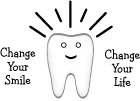Sleep apnea and your health
Obstructive sleep apnea is about so much more than snoring. Sleep apnea affects your health in so many ways. While CPAP treatment can be considered a burden to some, it is a necessary treatment to help you with your overall health. Let’s go through the health concerns one-by-one to raise awareness of sleep apnea.
The Heart
CPAP treatment can help with hypertension. Up to 90% of sleep apnea patients have hypertension. This is the disease of abnormally high blood pressure.
Studies have shown that up to 35% of patients with heart failure have obstructive sleep apnea. The severity of your sleep apnea can go hand-in-hand with the severity of heart failure. Sleep apnea not only increases your blood pressure, but it can impair ventricular function, increase pulmonary artery pressure, and increase your risk for stroke.
Decreased Daytime Sleepiness
CPAP therapy can improve your quality of sleep thus leading to a decrease of daytime sleepiness. It may relieve the occurrence of morning headaches that are most likely associated with low oxygen levels and changes in carbon dioxide levels during the night. Improved airflow or the improved continuous positive airway pressure can lead to deeper, more restorative sleep. This, in turn, improves alertness the next day.
Memory
If you are struggling with short-term memory issues, you may have untreated sleep apnea. As sleep quality improves with CPAP treatment, your memory can begin to improve.
Diabetes
The quality and longevity of sleep has been directly associated with the development of insulin resistance in some studies. Those at high risk and those with diabetes could face difficulties until their sleep apnea is fully treated.
GERD
GERD is gastroesophageal reflux disease. Breathing against a closed airway can exacerbate GERD symptoms. GERD patients can see immediate benefits of CPAP treatment through the decrease of negative intrathoracic pressures.
Depression
Improved sleep quality has been associated with mood improvement and can decrease depressive symptoms while improving psychosocial relationships in one’s life.
Don’t suffer in silence. If you suspect you have obstructive sleep apnea say something to your dentist. Anyone can have OSA, including women, children, and even toddlers! You are not alone!
We’re ready to discuss your symptoms and refer you to have a sleep study performed. Contact our office today to schedule an appointment for a courtesy consultation, and soon you’ll be experiencing your best sleep ever.

